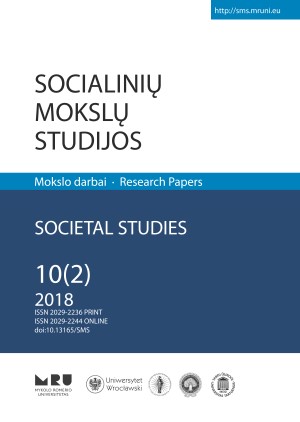APLINKOS APSAUGOS SISTEMOS VALDYMO TRANSFORMACIJŲ APŽVALGA LIETUVOJE
OVERVIEW OF THE TRANSFORMATION OF LITHUANIA’S GOVERNANCE SYSTEM FOR ENVIRONMENTAL PROTECTION
Author(s): Oksana Tomaševičienė, Julija StaroselskajaSubject(s): Social Sciences, Governance, Environmental and Energy policy
Published by: Mykolas Romeris University
Keywords: environmental protection systems; transformation of governance; governance for environmental protection; development of environmental protection; environmental protection; nature conservation;
Summary/Abstract: This article analyses the governance system for environmental protection in different periods in Lithuania. It has been stated that during the first period of Lithuanian independence, any specialised environmental protection institution has been established. The use and protection of natural resources has been under the responsibility of agricultural and forestry institutions. Development of the governance system for environmental protection began in the Soviet period after the Second World War, when the State Nature Protection Committee was established and the Nature Conservation Act adopted. The committee focused on the protection of biological diversity, natural resources and the landscape, with the conservation of non-living components of the environment under the responsibility of other institutions. There was a move towards comprehensive environmental preservation when the Environmental Protection Department was established under the Parliament of the Lithuanian Republic during the first year of the restoration of independence. A more widespread approach to preservation was put in place with the establishment of the Ministry of Environmental Protection and its later reorganisation as the Ministry of Environment, as well as the establishment of the Environmental Protection Agency. This article analyses the country’s frequent reorganisations of environmental protection institutions and argues that these create a governance system in this area that is not stable or effective.
Journal: Socialinių mokslų studijos
- Issue Year: 10/2018
- Issue No: 2
- Page Range: 313-321
- Page Count: 9
- Language: Lithuanian

